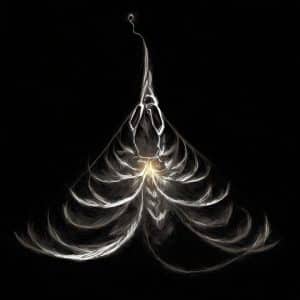03
I lie in bed listening to the steady hiss of the CPAP machine.
 About ten years ago, I was diagnosed with sleep apnea. That’s when you stop breathing during sleep so your brain panics and rouses you just enough to get the breathing restarted. Because that mini-awakening happens, you don’t descend into a deep, restorative sleep.
About ten years ago, I was diagnosed with sleep apnea. That’s when you stop breathing during sleep so your brain panics and rouses you just enough to get the breathing restarted. Because that mini-awakening happens, you don’t descend into a deep, restorative sleep.
After I was tested, I was told I had forty-seven instances an hour, although one sleep tech during one another test told me I kicked lots in my sleep, so that might’ve confused the results. One doctor said it was unusual for me to have a case of sleep apnea at all given my build (as usually, it’s a condition prone to overweight people). Yet another sleep tech told me that it sounded like the Aropax changed something in the way my brain works to mess up my sleep.
So many theories and no real solutions.
When I was in hospital with my broken leg (several years before my diagnosis), a nurse woke me early morning (at like 3.00am) because she said I’d stopped breathing, and feared I’d died.
About a week later, I had surgery to insert plates, and was wheeled back to my bed. Another nurse told me later she was watching me sleep, and saw that I stopped breathing. She waited, she told me, and waited, and waited, and was about to call for a crash cart when I finally took a deep breath.
I wonder about that, about those flirtations with death – if that’s what they can be considered. Is that like dipping a toe into the water to gauge the temperature? Dying from sleep apnea is extremely rare, but apparently it happens. The condition, among other things, (accumulatively) also puts stress on the heart, so people can die from heart disease (related to sleep apnea).
The CPAP machine is meant to provide a constant stream of air through the airways, so they don’t collapse (and obstruct breathing), but it’s not easy getting used to wearing the mask.
It protrudes from your face, the tubing snaking back to the CPAP machine. It’s impossible sleeping on your side. Wake throughout the night and see the silhouette of the mask or tube and your immediate response is fright. It looks like somebody’s leaning over you.
Sometimes, when I can tire myself out physically, or when the exhaustion finally piles up so much that I do finally begin to drift off, the air hissing from the CPAP machine morphs into a voice that’s like the buzzing of powerlines filtering into language.
Years ago, decades ago, when I was dealing with the fallout from my first major anxiety episodes, sometimes I would see vivid but disturbing imagines in my mind as I tried to get to sleep. Or I would hear things. One time I heard what sounded like a gong. Another time I thought I heard somebody whisper.
My GP explained that as we drift off to sleep, the unconscious mind can project dream imagery and audio, although we’re still conscious enough that we think we’re awake, and what we’re seeing and/or hearing is real. He said these episodes were called hypnagogic hallucinations (and that they were harmless).
I’ve experienced them intermittently throughout my life, and have usually been able to categorize – and dismiss – them when they occur.
But this feels different, like something’s traversed planes of existence, punched a hole into our own, and is attempting to draw my attention.
I wake and feel unnerved. I can’t remember what was spoken; already it’s faded. But the unnaturalness of the tone, the inhumaneness of it, remains like an unpalatable aftertaste I know I won’t be able to wash away. Whatever tiredness had been about to embrace me has evaporated.
Now there’s only the darkness and the hissing of the CPAP machine, and this sense …
Hear a knock at the door in the morning, and you go to answer it; hear a thump in the house in the afternoon, and you go to investigate; talk about all sorts of scary things while the sun’s out, and it barely registers.
But at night, we entertain every possibility that these things might be the thread that unravels the veil that separates us from … what?
Something.
Something else.
And it becomes the place we dare not go.